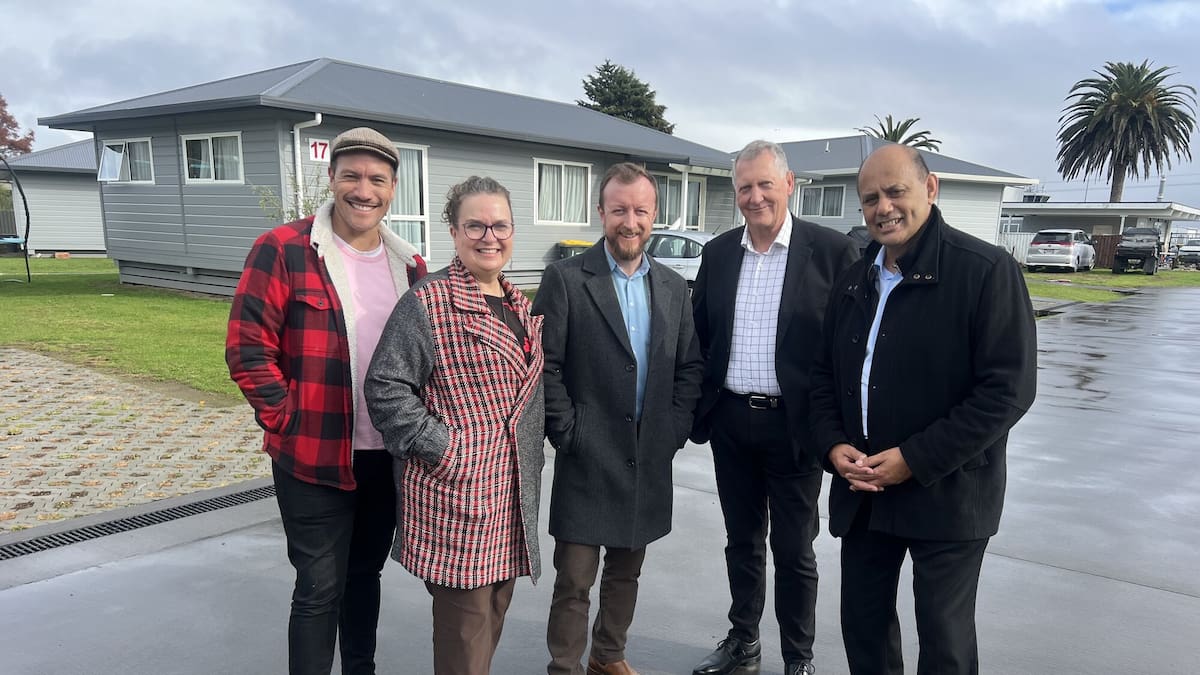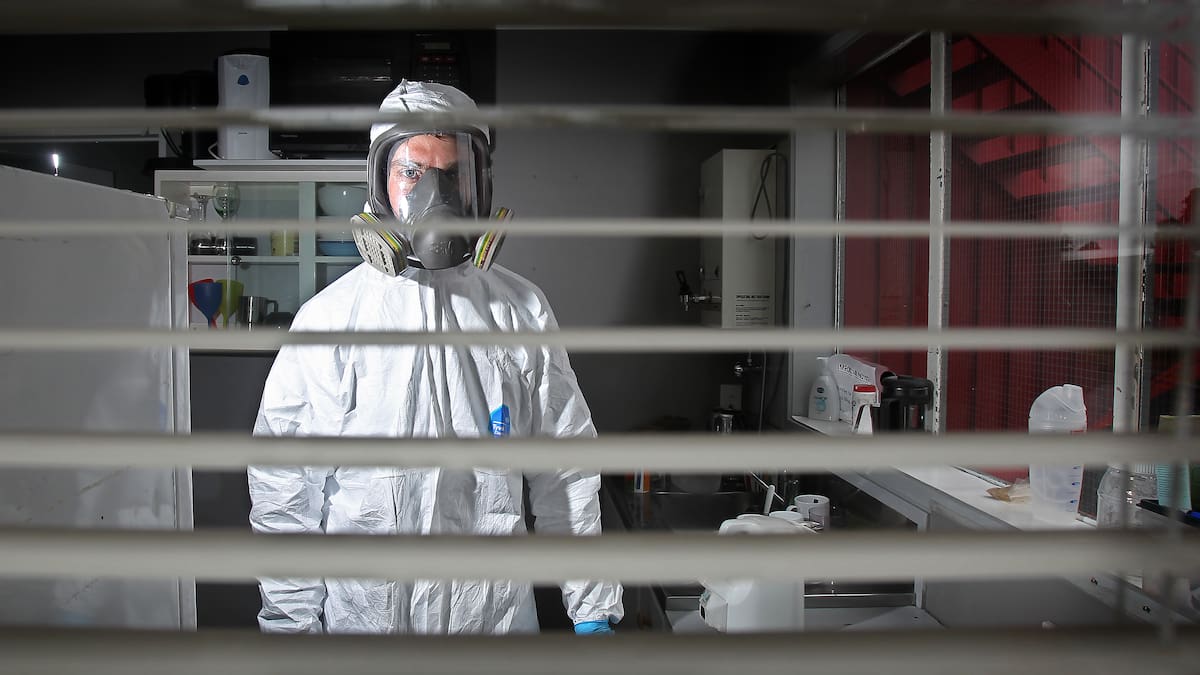The projects included Kakahoroa, opposite Rotorua Airport, which got $4.2 million in government funding to help Ngāti Uenukukopako build 15 papakāinga-style homes on iwi land. The other project was Ōwhata Kōhanga Rākau, which was given $24.5m for 38 rentals and kaumātua housing, 27 homes to buy and 28 social housing rentals.
McAnulty said Labour made a good start building houses in Rotorua, but there was still “a hell of a lot of work to do”. He said that would not happen under National.
“The Government is completely disingenuous when it comes to housing … And they’ve stopped the expansion of Kāinga Ora homes, they’ve taken $1 billion out of targeted Māori projects, and housing is a massive part of that.
“We are literally standing on a development [Kakahoroa] that benefited from that sort of funding. We need more of this, and the Budget sent a clear message that we aren’t going to get any more.”
McAnulty said he was “genuinely saddened” when he saw eight homeless people within about 200m while doing a short walk through Rotorua’s CBD on Monday alongside Tinetti.
“That is really heartbreaking stuff. In the jewel of New Zealand’s tourism crown, and we are sending a message to the world, this is how we treat our people?”
McAnulty said the Government was “lying” when it said it had fixed emergency housing.
“All they have done is stop people from getting into emergency housing.”
He said they had been given examples of mothers and children escaping domestic violence situations who were not allowed into emergency housing because they had been deemed to have contributed to their situation by leaving their homes.
“So this Government is literally saying they would rather people stay in an unsafe environment than go into emergency housing. Take a breath and soak that in. That’s pretty serious stuff.”

Labour Māori development spokesman Willie Jackson said the party was “stunned” by the Government’s Budget, especially the disappearance of Whai Kāinga Whai Oranga – the previous Government’s four-year $730m commitment to speed up the delivery of Māori-led housing.
He claimed the Budget had wiped $1 billion of targeted Māori funding, which he described as ‘’just catastrophic’’.
But McClay rejected the assertions that there had been targeted Māori housing cuts, saying there was soon to be another housing announcement in the city.
He said there was also $150m in the Budget to partner with and support private and community housing providers.
He said there were 62 emergency housing motels in Rotorua under Labour, and now there were five. Two more were closing by the end of July, and the remaining three would close by the year’s end.
Associate Housing Minister Tama Potaka said emergency housing numbers “ballooned out of control” under Labour.
“Thousands of whānau and tamariki were left to grow up in dire emergency housing motels for long periods.”
National had supported more than 2000 children and their families into better homes under the Priority One policy, he said.
“The previous Government didn’t know where half those leaving emergency housing were going … We are regularly improving our data and now know about 85% of those moving from emergency housing are going into better homes.”
Potaka said Kāinga Ora had a significant building programme in Rotorua. There are 170 social homes being built now, and a further 72 social homes are under construction or contracted to be completed by July next year.
He said the Government announced $200m in February to accelerate Māori housing projects for 400 homes across the country, and its housing ministry was in discussions to partner with iwi in Rotorua for more large-scale affordable rentals by the end of 2027.
He described Labour’s claims about how the Budget impacted Māori as “incorrect and irresponsible”.
“Our significant investment in frontline public services like health, education and police will benefit both Māori and all New Zealanders – as will our focus on growing the economy, creating jobs and lifting wages.”
Regarding comments that the change in housing funding was “catastrophic for Māori”, Potaka said the Government was consolidating funding for social housing and making it easier for providers to access funds.
Kelly Makiha is a senior journalist who has reported for the Rotorua Daily Post for more than 25 years, mainly covering police, court, human interest and social issues.






